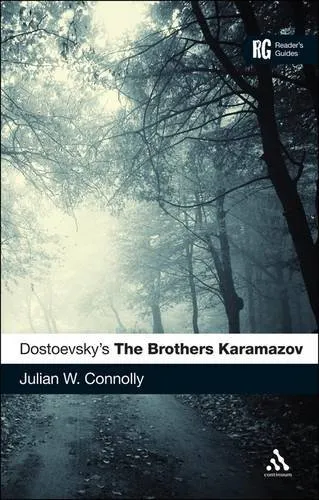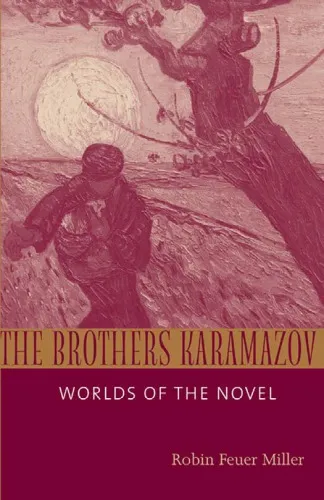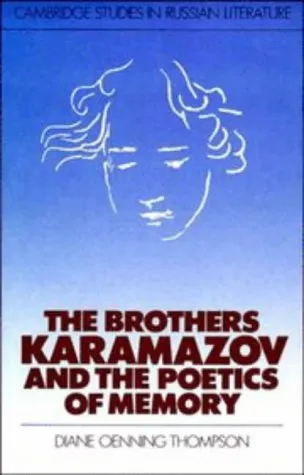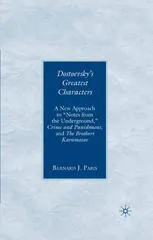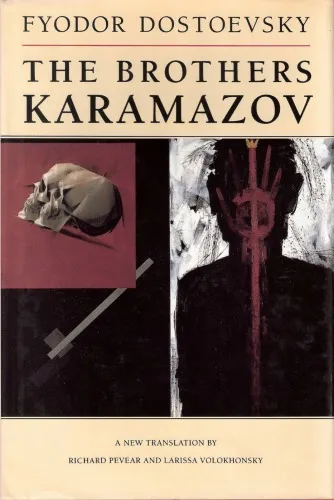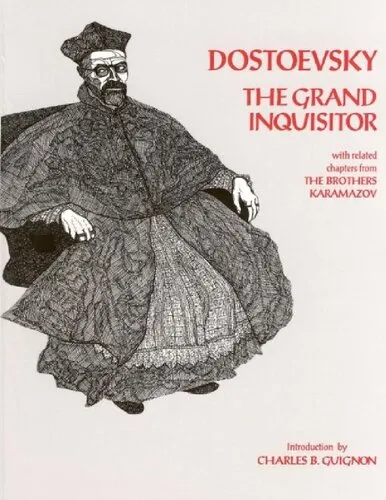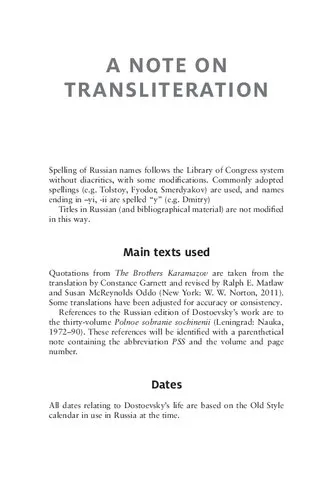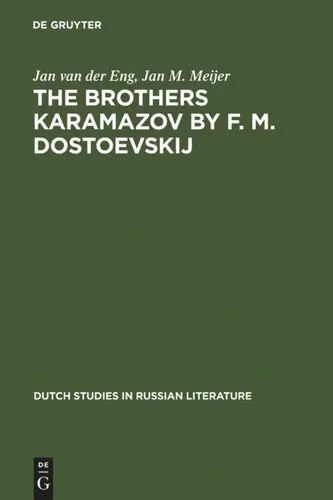Dostoevsky's The Brothers Karamazov
4.3
Reviews from our users

You Can Ask your questions from this book's AI after Login
Each download or ask from book AI costs 2 points. To earn more free points, please visit the Points Guide Page and complete some valuable actions.Related Refrences:
The Brothers Karamazov: An Introduction
Fyodor Dostoevsky's final novel, The Brothers Karamazov, stands as a monumental work in world literature. First published in 1880, this philosophical drama reflects the contradictions of human nature and delves into profound questions of faith, free will, and morality. Through the tale of the Karamazov family, Dostoevsky offers a penetrating look into the conflicts that reside at the heart of human existence.
Detailed Summary of the Book
The narrative of The Brothers Karamazov revolves around the tumultuous lives of the Karamazov family, comprised of the impulsive patriarch Fyodor Pavlovich and his three sons: the intellectual Ivan, the passionate Dmitri, and the spiritual Alyosha. The novel opens with a family meeting designed to resolve a financial dispute between Fyodor and Dmitri. However, the meeting quickly devolves into chaos, setting the stage for the drama that unfolds.
Central to the plot is the murder of Fyodor Karamazov, a crime for which Dmitri is accused. This event serves as a catalyst for the exploration of various philosophical themes. Ivan grapples with existential dilemmas, most notably in his "Grand Inquisitor" parable, where he challenges the existence of a benevolent God. Meanwhile, Alyosha, a novice monk, strives to embody love and forgiveness, offering a counterpoint to the cynicism around him.
The complexity of human nature is exemplified in the brothers' choices and struggles, as well as in the supporting characters, such as the devout Grushenka and the saintly Elder Zosima. The intricate plot is woven with reflections on faith, doubt, and the search for meaning, culminating in a narrative that is as compelling as it is profound.
Key Takeaways
- The duality of human nature is a central theme, as illustrated by the contrasting personalities and choices of the Karamazov brothers.
- Dostoevsky presents a critique of rationalism and showcases the tension between faith and doubt through the character of Ivan.
- Alyosha embodies the novel's message of redemption, emphasizing the power of spiritual love and forgiveness.
- The novel offers a profound exploration of existential questions, such as the purpose of suffering and the nature of free will.
Famous Quotes from the Book
"What is hell? I maintain that it is the suffering of being unable to love."
"The mystery of human existence lies not in just staying alive, but in finding something to live for."
"Above all, don't lie to yourself. The man who lies to himself and listens to his own lie comes to a point that he cannot distinguish the truth within him, or around him, and so loses all respect for himself and for others."
Why This Book Matters
The Brothers Karamazov is not only a gripping narrative but also a deep philosophical investigation into the human psyche. Dostoevsky's exploration of themes such as guilt, redemption, and the divine make the novel a universal study of human condition. It is a masterful blend of tragedy and theology, touching both the heart and mind, and its relevance continues to resonate in modern discourse.
As readers delve into the world of the Karamazovs, they encounter a reflection of their own existential struggles and are invited to ponder the essential questions of human life. This timeless classic challenges readers to contemplate the moral dilemmas that define human existence, establishing its place as a cornerstone in the canon of world literature.
Free Direct Download
You Can Download this book after Login
Accessing books through legal platforms and public libraries not only supports the rights of authors and publishers but also contributes to the sustainability of reading culture. Before downloading, please take a moment to consider these options.
Find this book on other platforms:
WorldCat helps you find books in libraries worldwide.
See ratings, reviews, and discussions on Goodreads.
Find and buy rare or used books on AbeBooks.
1652
بازدید4.3
امتیاز0
نظر98%
رضایتReviews:
4.3
Based on 0 users review
Questions & Answers
Ask questions about this book or help others by answering
No questions yet. Be the first to ask!
